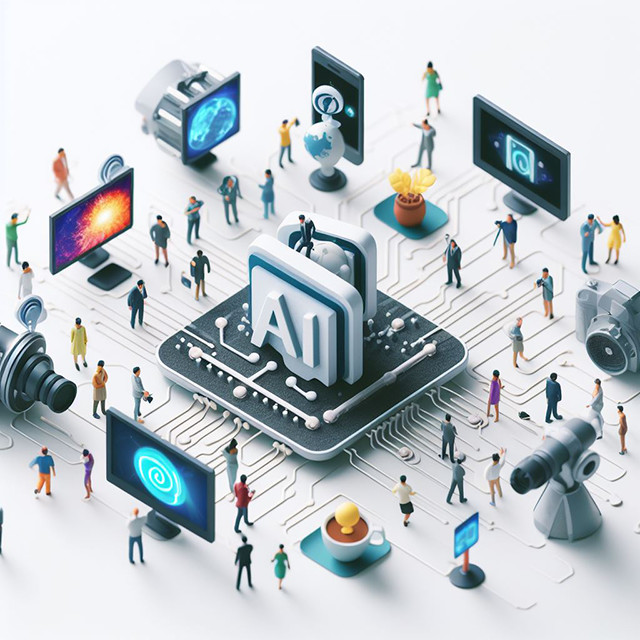Emergent AI, Global Red Lines, and Barcelona’s Role in Shaping a Safe AI Future
The dawn of unprecedented advancements in artificial intelligence (AI) technology has brought humanity to a critical inflection point. Recent breakthroughs in large language models (LLMs) and other AI systems have demonstrated remarkable “emergent abilities”—skills and behaviors that arise spontaneously as AI scales in complexity and data exposure. These emergent capabilities promise revolutionary applications across industries and societies but also introduce grave risks and ethical dilemmas. This precarious balance has prompted global calls, notably supported by Nobel laureates and AI pioneers, for establishing strict “red lines” to govern AI development and deployment by 2026. Among the technological hubs shaping this dialogue, Barcelona stands out as an outstanding center fostering innovation and ethical AI research. This article explores the emergent phenomena within AI, the urgent international push for regulatory guardrails, and Barcelona’s strategic role within this transformative context.
Emergent Abilities in Large Language Models: Unveiling New Capabilities
In recent years, large language models trained on vast datasets have exhibited capabilities far exceeding their original programming. These emergent abilities include complex multi-step reasoning, cross-domain knowledge synthesis, and creative generation tasks such as storytelling and poetry. These are not explicitly coded skills but arise naturally as the scale and diversity of training data increase. Such emergent properties herald an exciting future where AI systems can interact with nuanced human language, offer advanced problem-solving, and assist in creative industries.
However, the unpredictability intrinsic to emergence also poses unique challenges. Some behaviors might be unintuitive or uncontrollable, raising concerns about unintended consequences and the potential for AI to act in ways not aligned with human values or safety.
Global Call for AI Red Lines: A Nobel-Laureate-Backed Initiative
Recognition of Risks and Benefits
Recognizing both the benefits and risks, a coalition of more than 200 prominent figures—including Nobel laureates across disciplines, AI researchers like Geoffrey Hinton and Yoshua Bengio, former heads of state, and civil society leaders—has issued a clarion call for internationally binding “red lines” on AI development. Announced at the United Nations General Assembly in 2025, these red lines are concrete, verifiable boundaries designed to prevent AI systems from engaging in activities deemed universally unacceptable.
Prohibited AI Activities
Key prohibitions include banning autonomous AI replication, power-seeking behavior, AI-driven cyberattacks, lethal autonomous weapons, and any AI influence over nuclear weapon decisions. Furthermore, these guidelines emphasize the need for robust enforcement mechanisms and global cooperation to ensure compliance, addressing concerns that fragmented or voluntary regulations would be insufficient against rapidly advancing AI capabilities.
Critical Ethical Concerns
The red lines initiative reflects a broader awareness that certain AI risks could inflict irreversible harms on humanity — ranging from engineered pandemics and misinformation campaigns to erosion of democratic governance and existential threats from loss of human control.
Barcelona’s Role in Ethical AI Innovation and Governance
AI Governance and Data Protection in Catalonia
Barcelona, as the capital of Catalonia, is a key hub for AI innovation and ethical governance. The Catalan Data Protection Authority’s 2025 report highlights the region’s commitment to addressing ethical challenges posed by AI, especially in automated decision-making algorithms used in sectors such as healthcare, justice, education, and banking. The report emphasizes mandatory compliance with GDPR principles—transparency, fairness, accountability, and respect for fundamental rights such as dignity, freedom, and equality.
Alignment with Global AI Red Lines
Catalonia actively promotes human-centric AI that respects citizens’ rights, reflecting the intent of global AI red lines. The region prioritizes transparency around AI’s impacts and enforces regulations to prevent discrimination, misuse, and loss of individual autonomy. The Catalan Data Protection Authority leads mapping AI deployments and investigating risks, positioning Barcelona as a testing ground for strong AI ethical standards within democratic frameworks.
Smart City Initiatives & Public Awareness
Barcelona integrates AI responsibly within its smart city programs, focusing on public well-being without compromising privacy or rights. Local initiatives enhance public understanding of AI, ensuring citizens recognize both visible and hidden impacts of automated systems in daily life. This proactive approach exemplifies how Barcelona embodies ethical AI principles in practice.
Navigating the Path Forward: Balancing Innovation and Safeguards
The emerging red lines framework highlights a shared realization that unchecked AI development risks catastrophic outcomes, yet overly restrictive measures could stifle innovation and societal progress. Finding the delicate middle ground demands ongoing vigilance, interdisciplinary collaboration, and transparent governance models.
As AI systems continue to demonstrate complex emergent behaviors, the need for rigorous verification, ethical oversight, and enforceable international standards becomes more urgent. The Nobel laureates’ call serves not only as a warning but as an invitation to global unity in shaping AI’s trajectory toward augmenting human potential rather than undermining it.
In this landscape, Barcelona exemplifies how cities can become proactive agents in delivering this vision by anchoring innovation in ethics and responsibility.
AI’s emergent abilities promise a future with transformative opportunities but also unprecedented risks. The global push, prominently endorsed by Nobel laureates, for enforceable AI red lines by 2026 signals a critical juncture in humanity’s stewardship of this powerful technology. Barcelona’s effervescent AI ecosystem and ethical leadership position it as an influential contributor to constructing a future where AI’s benefits are realized safely and equitably.
The path forward requires a balanced approach of ambitious innovation paired with clear, verifiable boundaries—red lines that protect human values, safety, and dignity against the complex challenges emergent AI systems present. Collective action, informed by science, ethics, and public dialogue, will be essential to turn this vision into reality.



Comments
Post a Comment